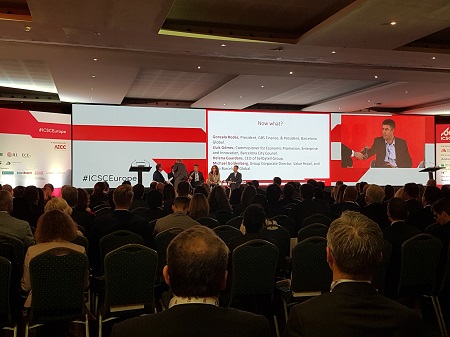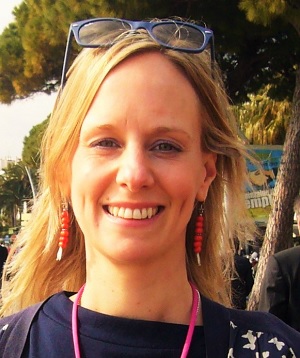The City of Barcelona’s recent crisis point has proved a catalyst for positive change, according to keynote speaker Greg Clark, global advisor on cities, speaking at ICSC’s annual European event in the Catalan capital.
‘The world can be organised into different types of cities, those that can cope with change – by being more adaptable, more resilient, more able to turn change into opportunity – and those that can’t,’ Clark said.
‘Over the last 18 months, Barcelona has faced three key shocks: a revolt against tourism in the city, a terrorist attack, and the political crisis that started with the popular movement from the Catalan people,’ he said.
‘But Barcelona is back.’
Calling a panel of city leaders on stage, Clark asked public and private-sector chiefs how the city was managing to bounce back from the effects of poor international opinion and declining tourism numbers in the second half of 2017.
‘Word of mouth has been crucial,’ said Helena Guardans i Cambo, Spanish CEO of outsourcing firm Sellbytel in Spain, and managing director of the group. ‘We hire around 1,000 people per year, and we saw that where our current employees helped us recruit friends and connections overseas, they were communicating that Barcelona hadn’t changed. However direct recruitment was much tougher due to a negative message about the city getting out.’
Gonzálo Rodes, president of territorial body Barcelona Global, said: ‘We’re still standing. The city’s development over the last decade or so has been strong and that stood us in good stead.
‘The closing quarter of 2017 was poor in terms of new enterprise. We are acting firmly and decisively to avoid the silent death of our city. We are now putting in place agendas to secure investment returns.’
Clark said that the example of Barcelona was an apt metaphor for the retail real estate industry. ‘The century that we’re in is driven by mega trends,’ he said. ‘Figuring out the puzzle that they represent is crucial. Disruptive elements can also be a part of the solution.’




























